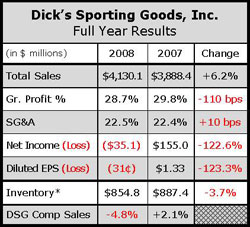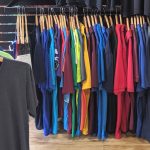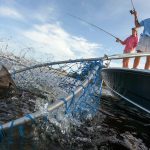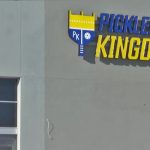Russell Athletic has taken another step to resolve disputes with a number of colleges and universities that have announced cancellation of apparel contracts with the athletic apparel brand. The company, which has been dealing with a crescendo of attacks from student activist groups over the handling of a factory closure in Honduras, has invited the presidents and chancellors of approximately 20 schools that have cancelled contracts with Russell to join the company on a fact-finding tour of the Honduras factories to see the truth about the company's factory conditions and workforce.
“Our sincere hope is these long-time, valued customers will accept our invitation and visit our Honduran operations so they can see the conditions for themselves,” said Russell EVP Gary Barfield, who sent the letter inviting schools on the trip. “We want to be transparent, we have nothing to hide and we think the truth will speak for itself.”
As first reported in SEW_0909, a number of colleges across the country have ended their licensing agreements with Russell Athletic over charges that a plant in Honduras was closed in order to shut down a union. Russell has said the closing was in response to economic reasons and denied the anti-union allegations. Complicating matters even more was a report by the Fair Labor Association, which supports the Russell position while suggesting at the same time that there was some labor strife at the factory in question. Activist students, emboldened by past wins against other brands, seized upon the one aspect of the FLA report and another by a workers rights group, while ignoring the primary assertion by the FLA that the reason for the closure was economically based.

“The activists making these misleading accusations have never been to Honduras, much less visited one of our plants,” Barfield said. “The allegations are damaging and amount to a smear campaign that we are being forced to defend ourselves against to preserve our brand and the jobs of our valued employees at plants in Honduras and elsewhere.”
Barfield pointed out that contrary to the charges being made, Russell had already recognized the union status at Jerzees de Honduras in October 2007, more than a year before the global economic downturn forced the closure of the plant.
Barfield pointed out that contrary to the charges being made, Russell had already recognized the union status at Jerzees de Honduras in October 2007, more than a year before the global economic downturn forced the closure of the plant.
The Fair Labor Association, as well as an independent report it commissioned both agreed: it was “imperative” for Russell to close one of its three Honduran plants because of the loss of customer orders.
The independent report done by The Cahn Group, a corporate responsibility consulting firm, also confirmed the two reasons why this plant was chosen: 1) The need for products sewn there was lower than any of Russell's other factories. And 2) it was the only one with a lease that could be vacated immediately, avoiding unnecessary shutdown costs of more than $2 million.
The independent report done by The Cahn Group, a corporate responsibility consulting firm, also confirmed the two reasons why this plant was chosen: 1) The need for products sewn there was lower than any of Russell's other factories. And 2) it was the only one with a lease that could be vacated immediately, avoiding unnecessary shutdown costs of more than $2 million.
Barfield said Russell acknowledged that in 2007, there had been some problems surrounding union recognition. “We admitted the mistakes made by some of our local managers and we fixed them,” he said. “We rehired some workers, paid back wages and we took steps to ensure this would never happen again. Independent reports confirm we made good on our word.”
Russell reported in a release late last week that the Worker Rights Consortium sent a memo in January 2008 to all its member schools praising the company for making “very substantial progress.” The memo highlighted the fact that Russell's efforts to fix the problems had been “unusually successful” and that, “This was accomplished as a result of effective cooperation between management and the union.”
Barfield asked why, after the 2007 problems were corrected and Russell received praise in 2008 from the WRC and another independent investigation, the company was being attacked again in 2009.
“The global economic meltdown forced us to close eight plants, only one of which was unionized. Why is that one plant the WRC's sole focus? Why no concern for the people laid off from the other seven?”
The independent reports by A.L.G.I., a group of labor compliance experts that investigated the 2007 violations, included verification visits at two of Russell's Honduran plants, including the one in question, Jerzees de Honduras. A.L.G.I. found in February 2008 that Russell had fixed the problems in a manner that was “most proactive.” A.L.G.I. also reported that “policies and procedures currently adhere to the highest standards for prevention of harassment, abuse and discrimination policies. Measures adopted appear to be sustainable and efficient on a long-term basis.”
In a follow up report after the recent announcement of the Honduran plant closing, A.L.G.I. reviewed minutes of monthly meetings between management and union leaders and found no evidence of anti-union activity.














